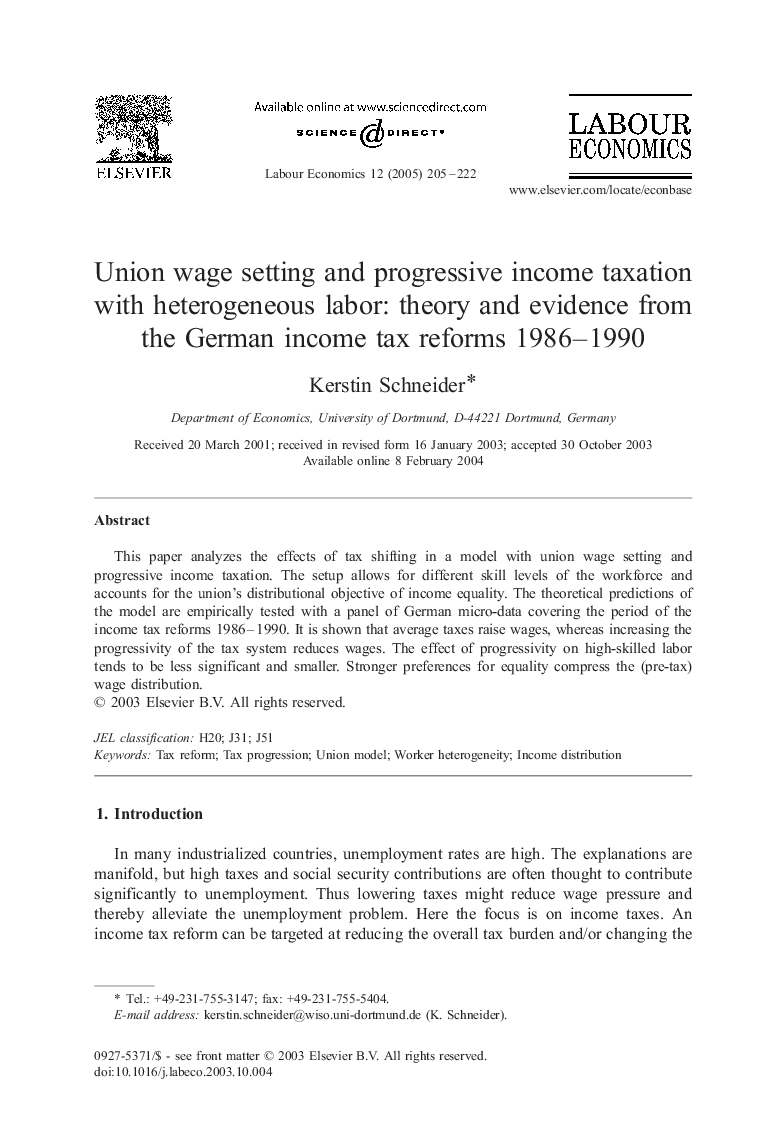| Article ID | Journal | Published Year | Pages | File Type |
|---|---|---|---|---|
| 10479981 | Labour Economics | 2005 | 18 Pages |
Abstract
This paper analyzes the effects of tax shifting in a model with union wage setting and progressive income taxation. The setup allows for different skill levels of the workforce and accounts for the union's distributional objective of income equality. The theoretical predictions of the model are empirically tested with a panel of German micro-data covering the period of the income tax reforms 1986-1990. It is shown that average taxes raise wages, whereas increasing the progressivity of the tax system reduces wages. The effect of progressivity on high-skilled labor tends to be less significant and smaller. Stronger preferences for equality compress the (pre-tax) wage distribution.
Related Topics
Social Sciences and Humanities
Economics, Econometrics and Finance
Economics and Econometrics
Authors
Kerstin Schneider,
